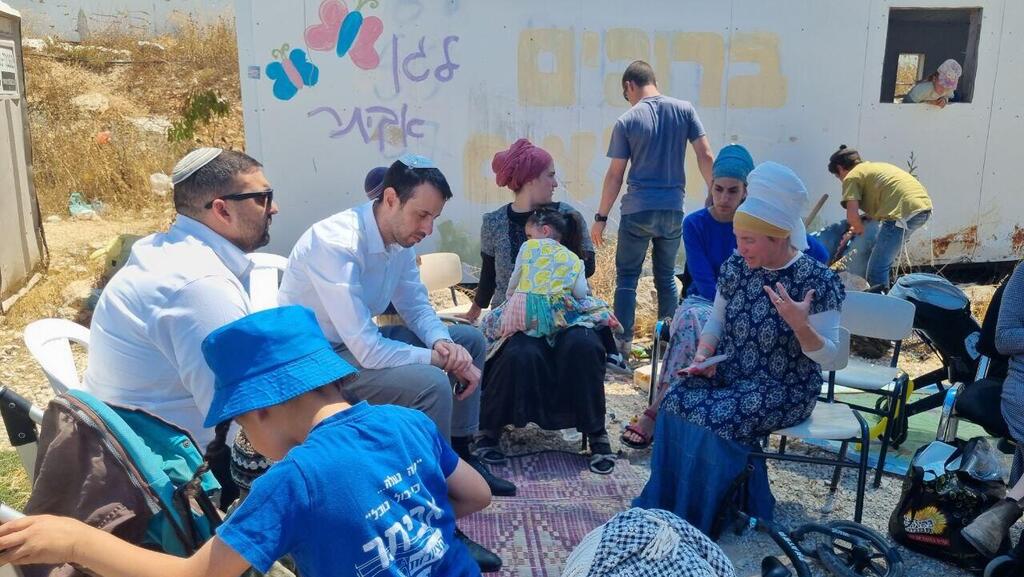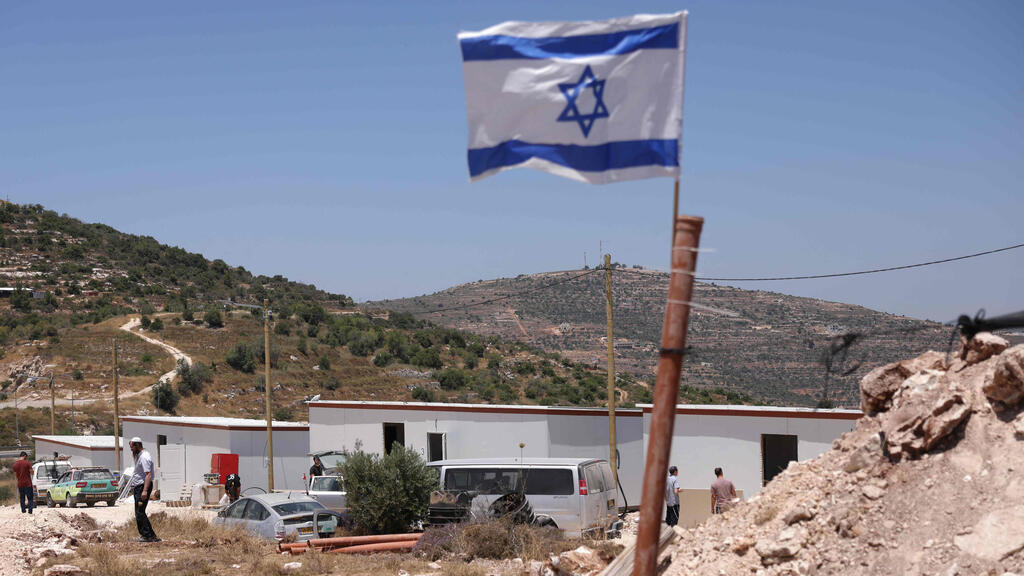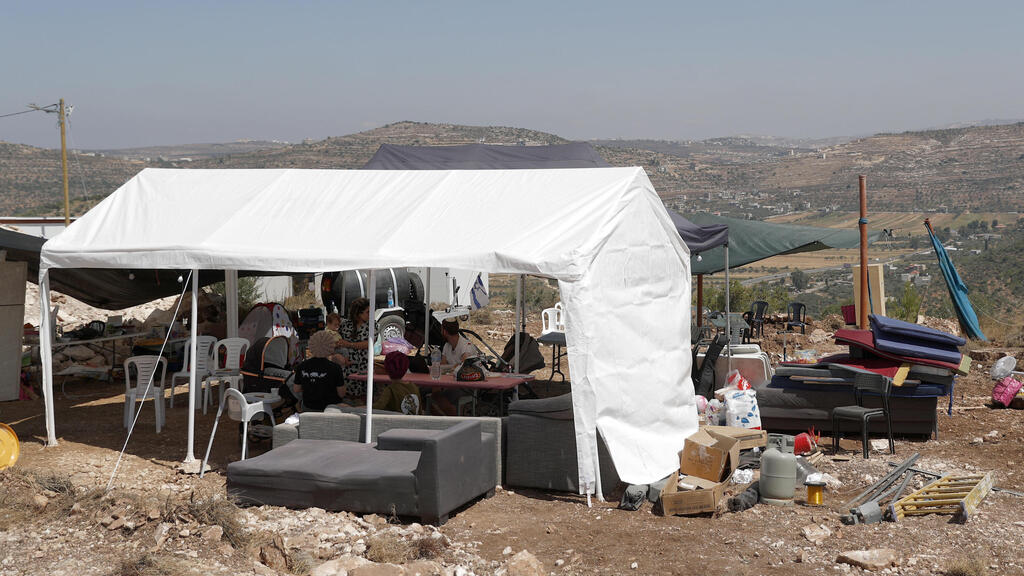The outpost recently established in Binyamin
"When four teenagers set up an agricultural farm in the West Bank, and herd their flock in an area while restricting the movement of the Palestinians, it can cause outrage. Now consider this happening simultaneously in 40 different locations. What impact can that have on the region?" asked a senior security official who described events since Bezalel Smotrich was appointed to be an additional minister in the Defense Ministry, responsible for West Bank settlers and for the coordination of government activities in the territories (COGAT).
More stories:
Since Smotrich assumed his rule, security officials in the area claim there has been a change in Israel's policy beyond the Green Line. The change was evident in government decisions such as the cancellation of the Disengagement Law in the northern West Bank, granting building permits for settlement housing, and authorizing the Evyatar outpost, and nine additional outposts.
According to the officials, the changes are dramatic and are implemented in a way that could affect the relations with the U.S. and the Palestinian Authority. "Politicians are deciding when and how to enforce the law," one said. "Authority over most matters that are not directly related to security has been transferred to Smotrich," he said.
"The situation in the West Bank is changed. When the Defense Minister was in charge, the IDF and security services determined what action to take when settlers took over land, and what the security priorities were," the official went on to say. "Now 90% of matters are decided by Smotrich and different priorities are in play upsetting the security forces ability to act."
The officials said they were concerned that decades-long efforts to manage the Israeli-Palestinian conflict were impeded leading to further security unrest and increasing the opposition of the PA and enraging the international community including the United States.
After the brutal attack in the West Bank settlement Eli, dozens of new outposts were established throughout the West Bank. Although most of them were on public land, some were on privately owned Palestinian territory. Security officials emphasized the significance of these outposts, to the relations with the PA. "I believe that all matters of settlement constructions have a very significant impact on the motivation, morale, and willingness of the Palestinians to continue security coordination because it only weakens the authority further. There are security implications to this," an official said.







